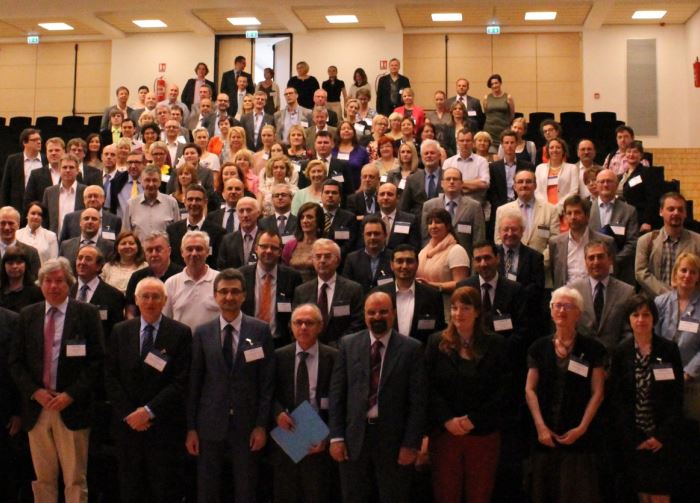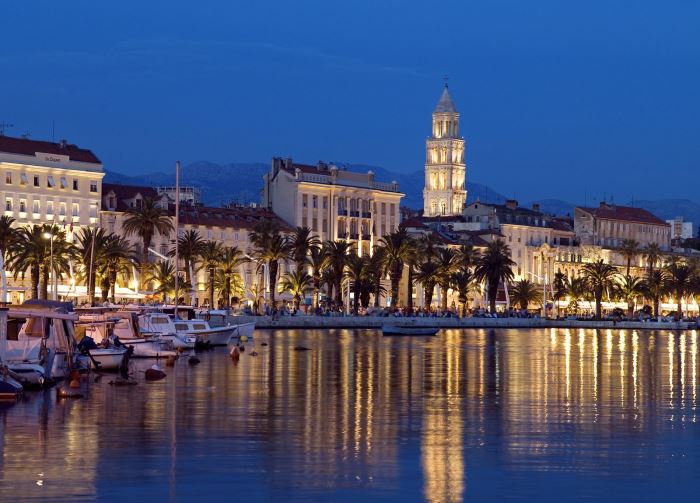‘Higher Education – Making the Knowledge Triangle Work’
9-10 May 2013, Split, Croatia
EURASHE’s (European Association of Institution in Higher Education) 23rd Annual Conference was held in Split, Croatia, on 9 and 10 May 2013 and was under the High Patronage of the President of the Republic of Croatia, Prof. Ivo Josipović. The Conference Theme was ‘Higher Education-Making the Knowledge Triangle Work’. EURASHE as the voice of professional higher education in the Bologna Process endeavours to carry out this action line, by linking Education, Innovation and Employability in a Knowledge Triangle in which professionally-oriented programmes play an important role.
The 23rd Annual Conference came at a moment when EURASHE was in a process of re-formulating its priorities, on the basis of its overarching policy paper ‘Towards a Diversified, Responsive and Competitive European Higher Education’. This comprehensive document outlines EURASHE’s position on priority areas which can be implemented on the level of the individual institutions, members of EURASHE and other higher education institutions (HEIs) with professionally-oriented programmes.
The Conference focused on what the association has identified as key features of the Knowledge Triangle, and what this entails for HEIs. During day one in the plenary meetings the Conference looked at how different countries shape their Education policies and presented issues like the comparison of European HE systems. On the second day the Conference focused on Innovation at institutional level, and examined, with examples of good practice, the implications of novel themes like entrepreneurship as a generic skill, experimental developments as a result of research, open access to research results and research data, knowledge transfer and student involvement in research and innovation.
 Finally, Employability explored the routes proposed in the European Commission’s communication ‘Rethinking Education’ on issues like employability in a lifelong learning context, recognition of prior learning, dual and work-based learning opportunities, development and roles of Career Centres, etc.
Finally, Employability explored the routes proposed in the European Commission’s communication ‘Rethinking Education’ on issues like employability in a lifelong learning context, recognition of prior learning, dual and work-based learning opportunities, development and roles of Career Centres, etc.
The President of EURASHE Prof. Andreas Orfanides pointed out that the conference will, with the above themes, contribute to the discussions in the countries and stakeholder organisations on the European Commission’s Horizon 2020 policies. Horizon 2020 focuses on turning scientific breakthroughs into innovative products that provide opportunities for business and also for the wider society. The rationale behind this is that “Europe’s future economic growth and the employment of its citizens will depend on innovation in products, services and business models”.
In Europe Small and Medium Enterprises (SMEs) are still the major creators of jobs and therefore the existing gap between academia and the market must be bridged, thus stimulating the transfer of technology to SMEs. The rules of participation in Horizon 2020 rightly focus on three indicators: excellence, impact and implementation. If we want to realise the major goals of Horizon 2020, namely to foster innovation by transferring knowledge to the market and the wider community in the most efficient and useful way, impact and dissemination of results become important criteria as excellence.
It is however true that innovation needs a wider interpretation than to be seen as the logical step to commercial application. The whole spectrum of sciences (from engineering and technical sciences, medical and life sciences to the social sciences and arts and humanities) contribute to an innovative society. Only in this way can the ‘societal grand challenges’ be tackled. It is especially from the interdisciplinary perspective that the social sciences and humanities play an invaluable role in the innovation strategy.
“Progress in each domain very much depended on the willingness of governments and stakeholders to reform higher education”.
